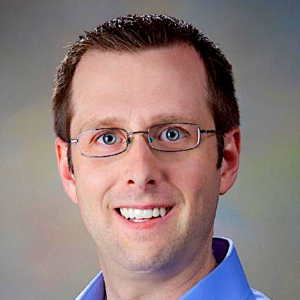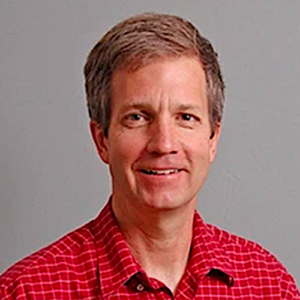HPC LAMMPS
Master Class Workshop
The first HPC LAMMPS Master Class will take place this summer as an in-person event in the Institute for Computational Molecular Science (ICMS) at Temple University in Philadelphia between June 3rd, 2024, and June 7th, 2024.

About Master Class Workshop
The main goal of the HPC LAMMPS Master Class is to assist programmers to improve, modernize, and accelerate their code. This will primarily focus on code intended for inclusion in the LAMMPS source code distribution. During the HPC LAMMPS Master Class event, experts in High-Performance computing and the LAMMPS molecular dynamics software will lecture about how to achieve good performance on modern HPC architectures using the LAMMPS Molecular Dynamics software as an example.
Participants are given ample time to consult with the experts on how to improve their own projects and, if desired, how to integrate them into LAMMPS distribution. Projects can include new features, porting existing features to KOKKOS, porting code written for older LAMMPS versions to the current code, work on improving and refactoring the LAMMPS code base, or add to the LAMMPS test library.
Lecturers for the HPC LAMMPS Master Class are the three most prolific contributors to the LAMMPS source code package and an HPC expert from the Oak Ridge leadership computing facility:
Steve Plimpton: Adjunct faculty at Temple University and former staff at Sandia National Labs. Steve is the principal architect of LAMMPS since its inception. He will lecture about high-level parallel communication patterns in LAMMPS.
Stan Moore: Staff at Sandia National Labs. Stan has contributed to multiple packages in LAMMPS and is currently the maintainer and primary programmer of the KOKKOS package in LAMMPS which uses the Kokkos library as an abstraction for writing modern C++ applications in a hardware agnostic way and thus support GPU acceleration for multiple GPU platforms and thread level parallelization. Stan will lecture on porting LAMMPS code to the KOKKOS package.
Axel Kohlmeyer: Research faculty at Temple University. Axel is the author of several packages and styles in LAMMPS (most notably the OPENMP package), co-author of the unit testing infrastructure, experienced in detecting and fixing bugs or refactoring code, and the primary contact for integrating new code into LAMMPS via GitHub. Axel will lecture about ongoing refactoring efforts for internal APIs and interfaces, porting code written for older LAMMPS versions, and the integrated tests for validating LAMMPS and detecting undesired side effects.
Fernando Posada, HPC Engineer in the Systems Acceptance and User Environment Group at the Oak Ridge National Laboratory. Fernando is an expert in deploying and operating HPC facilities and has been involved in acceptance testing of LAMMPS for the newest HPC resource hosted at ORNL.
If you have any questions about the HPC LAMMPS Master Class, please contact the local organizer at [email protected]
Installation Instructions for Tutorial
Participants must first set up the software and data to follow the tutorial:
To follow the LAMMPS tutorial you need a LAMMPS-GUI package for your platform.
At the time of this writing the latest release was the 17 April 2024 version.
Program Schedule
Any Temple affiliates are welcome and to join beginner workshop days (Monday: Day 1, Friday: Day 5). Advanced workshop days (Tuesday: Day 2, Wednesday: Day 3, Thursday: Day 4) will be limited.
Lecturers will be available to consult on LAMMPS issues outside the scope of the workshop (time and capacity permitting).
Morning lectures will be live-streamed on YouTube. Those following the live stream are encouraged to join the LAMMPS Workshop slack channel, where you can ask questions.
Time (EDT) | Activity | Presenter |
10:00am | Demo: Running LAMMPS, visualizing geometries, plotting thermo data, and modifying input with LAMMPS-GUI (Livestream available) | Axel Kohlmeyer, Steve Plimpton, Stan Moore |
10:20am | Lecture: Ins and Outs of LAMMPS input scripts (Livestream available) | |
10:40am | Demo: Editing LAMMPS input scripts (Livestream available) | |
11:00am | Lecture: Styles, Styles, Styles (Livestream available) | |
11:20am | Demo: Measuring material properties (Livestream available) | |
11:40am | Lecture: Accelerator Packages and Performance (Livestream available) | |
12:00pm | Lecture: Whirlwind tour of more advanced topics (Livestream available) | |
12:20pm | Discussion: General Q&A | |
12:30pm | Lunch | |
1:00pm | Discussion: Participant Projects | |
2:00pm | Consulting / Project Work | |
5:00pm | Day 1 Concludes |
Time (EDT) | Type | Presenter |
9:00am | Lecture: Introduction to KOKKOS (Livestream available) | Stan Moore |
10:30am | Coffee Break | |
10:45am | Lecture: KOKKOS in LAMMPS (Livestream available) | |
12:00pm | Lunch | |
1:00pm | Review: Participant Project Status | |
1:15pm | Consulting / Project Work | |
6:00pm | Dinner |
Time (EDT) | Type | Presenter |
9:00am | Lecture: High Level Parallel Communication Patterns Part 1 (Livestream available) | Steve Plimpton |
10:30am | Coffee Break | |
10:45am | Lecture: High Level Parallel Communication Patterns Part 2 (Livestream available) | |
12:00pm | Lunch | |
1:00pm | Review: Participant Project Status | |
1:15pm | Consulting / Project Work | |
5:00pm | Day 3 Concludes |
Time (EDT) | Type | Presenter |
9:00am | Lecture: LAMMPS Refactoring and Porting Code (Livestream available) | Axel Kohlmeyer |
10:30am | Coffee | |
10:45am | Lecture: LAMPS Testing (Livestream available) | |
12:00pm | Lunch | |
1:00pm | Review: Participant Project Status | |
1:15pm | Consulting / Project Work | |
5:00pm | Day 4 Concludes |
Time (EDT) | Type | Presenter |
9:00am | Lecture: Experiences from running LAMMPS at scale on the Oak Ridge supercomputers (Livestream available) | Edwin Fernando Posada, Axel Kohlmeyer |
10:30am | Coffee | |
10:45am | Lecture: Concluding Project Work and Final Review (Livestream available) | |
12:00pm | Lunch | |
1:00pm | Lecture: Introduction and Efficient Use of Temple HPC Facilities (Livestream available) | |
5:00pm | Day 5 Concludes |
Invited Speakers

Klein, Michael L.
Principal Investigator (PI)
Laura H. Carnell Professor in the Depts. of Chemistry, Physics, and Biology & Fellow of the Royal Society
My research interests focus on the use of theoretical & computational methods to study the properties of molecular solids and liquids and the self-assembly of both natural and synthetic macromolecules.
In collaboration with brilliant students and postdocs, I have developed computational methodologies and carried out computer simulations to understand the phase behavior and properties of systems ranging from small molecules, such as water, to larger molecules, such as surfactants and lipid bilayers, as well as synthetic macromolecules. Other applications have been aimed at understanding the sensing and gating mechanisms of Nature’s nano-scale machines, such as membrane-bound ion channels, as well as designing molecular therapeutics to combat viral and bacterial infections.

Kohlmeyer, Axel
Research Professor, Co-Director of HPC
Axel Kohlmeyer is Full Professor of Research, Associate Director of the Institute for Computational Molecular Science, and the Leader of the High-Performance Computing (HPC) Team at Temple University in Philadelphia, USA.
He also is an External Associate of the International Centre for Theoretical Physics in Trieste, Italy, where he collaborates with ICTP HPC staff on HPC-related activities and teaches in the International HPC Master program hosted by ICTP and SISSA in Trieste.
His main research interests are in software development and engineering for scientific software in general and for simulation and analysis of molecular dynamics simulation on highly parallel modern computer architectures in particular. He also is interested in improving HPC education for scientists and engineers. He is a core developer and co-maintainer of the LAMMPS Molecular Dynamics softwarepackage and has contributed to several other popular scientific software packages like VMD, Quantum-Espresso, HOOMD-blue,CPMD or CP2k.
Past positions in his academic career include the International Centre for Theoretical Physics in Trieste, Italy; the Center for Molecular Modeling at the University of Pennsylvania in Philadelphia, USA; the Center for Theoretical Chemistry at the Ruhr-University Bochum, Germany; and the Department for Theoretical Chemistry at the University of Ulm, Germany.

Posada, Edwin Fernando
Researcher: High-performance Computing
Fernando Posada is an HPC Engineer in the Systems Acceptance and User Environment group. He earned his Ph.D. in Chemistry from the Universidad Nacional de Colombia. During his doctoral studies, Fernando developed an interest in High-Performance Computing and completed a Master’s degree in the same field from the International School for Advanced Studies (SISSA) in collaboration with the International Center for Theoretical Physics (ICTP).
Since then, he has been involved in various HPC projects, working on designing, deploying, managing, and providing support to users in different HPC resources. Before joining ORNL, Fernando worked for six years at Temple University, where he supported and promoted research on on-premises HPC resources and national supercomputing centers through XSEDE.

Moore, Stan
Principal Member Of Technical Staff at Sandia National Laboratories
– One of the LAMPS code developers at Sandia National Laboratories in Albuquerque, New Mexico
– Been at Sandia for 10 years
– Main developer of the KOKKOS package in LAMMPS (runs on GPs and multi-core CPUs)
– Expertise in long-range electrostatics methods
– PhD in Chemical Engineering, dissertation on molecular dynamics method development for predicting chemical potential

Plimpton, Steve
Adjunct Research Professor at Temple University and Former member at Sandia National Laboratories, in the Multiscale Science Dept. of the Center for Computing Research
Steve Plimpton is an adjunct professor at Temple University College of Science and Technology and a distinguished member of the technical staff in the Center for Computing Research at Sandia National Laboratories, where he has been for nearly 30 years. He received his Ph.D. in Applied & Engineering Physics from Cornell University in 1989.
Steve’s research has been primarily focused on methods and parallel algorithms for a variety of particle-based HPC applications. Along the way, he contributed to a few combinatorial algorithms for problems like contact detection and radiation transport. He is best known for leading the development of open-source codes used for modeling materials at different scales. These include LAMMPS (classical molecular dynamics), SPPARKS (Monte Carlo modeling of materials processing at the mesoscale), and SPARTA (DSMC modeling of turbulence and flow in low-density gases). The most widely used of these is LAMMPS which has a world-wide community of 1000s of users and 100s of code contributors. He has also worked on MPI-based tools for big data processing on HPC platforms, including MapReduce and stream-processing libraries. He is a Fellow of the American Physical Society (APS) and has also been honored with a special session at the Minerals, Metals & Materials Society (TMS) annual meeting for the development of LAMMPS.
Registration
Participation at the LAMMPS Code Clinic requires registration. Registration will not guarantee acceptance into the program. Whether an application is approved or not will be communicated within 2 business days. There is noregistration fee. The registration form can be found by clicking the REGISTER button below.
Registration opens on May 15, 2024, and closes on May 31, 2024.
If you have any questions about the HPC LAMMPS Master Class, please contact the local organizer at [email protected]





